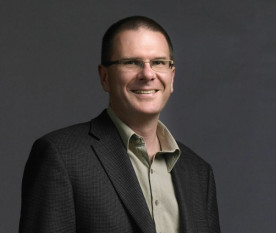Academy Executive Committee Elections
Positions on the Academy Executive Committee can come up for election each year.
Domain Convenor for Health and Medical Sciences
An election for the Convenor Health and Medical Sciences was held in 2024. Elected for the 3-year term commencing 1 July 2024 was:
Professor Stephen Robertson FRSNZ

Professor Robertson is a clinician-scientist and an international authority on the clinical and molecular genetics of life-limiting malformations and neurocognitive disorders. He has discovered the cause of >30 disorders, enhancing the clinical care of people with such conditions globally. He has been consistently committed to developing accurate diagnostic genomics for Maori and is currently scientifically co-leading the assembly of a national resource to enhance genomic medicine for tangata whenua. He is involved in the leadership of multiple national and international research consortia. He is a clinician, translating his research findings into practice focusing on equity and access to care. He has established a research lab of international standing, funded by Curekids (who endoed his Chair in 2002), the HRC (7 project grants) and the Marsden fund 5 grants). He is on the editorial boards of five international journals, has won prestigious awards (e.g. HRC's Liley Medal, 2010; Deans Medal for Research Excellence, 2018), and was Associate Dean (Research), Dunedin School of Medicine from 2014-2019.
Domain Convenor for the Physical, Earth and Mathematical Sciences
An election for the Convenor Physical, Earth and Mathematical Sciences was held in 2024. Elected for the 3-year term commencing 1 July 2024 was:
Professor Tim Naish NZAM FRSNZ

Tim Naish is Professor of Earth Sciences and ex-Director of the Antarctic Research Centre (2008-2017) at Te Herenga Waka, Victoria University of Wellington.
Tim’s 35 years research experience have provided fundamental breakthroughs on the causes and consequences of past natural global sea-level change that have allowed the human fingerprint of current and future sea-level change to be identified. He has provided a strategic focus on policy-relevant climate research at national and international level, bringing a much-needed ability for society to address the key questions on this existential issue.
Tim and his team have published in the world’s leading journals, helping underpin the importance of the global warming limit of a 1.5-2°C increase set by the 2015 Paris climate agreement. Tim’s team has also transformed the ability of local governments, planners, infrastructure providers and communities in Aotearoa-NZ to anticipate and adapt to the impacts of sea-level rise. Tim is also a committed communicator on Antarctic and climate science issues, such as the consequences and impacts globally and for New Zealand.
Tim was Lead Author on the Intergovernmental Panel on Climate Change (IPCC) 5th Assessment Report (2013). He serves on a number of international science organizing and governmental advisory committees, including membership of the Joint Scientific Committee that leads the World Climate Research Programme (WCRP). Through this role he is trying to better link climate science enterprise with the urgent needs of users and practitioners, such as lifting adaptative capacity in vulnerable communities, avoiding maladaptation, better understanding of the implications of climate interventions, and the evaluation of mitigation pathways.
Tim co-leads the Scientific Committee on Antarctic Research’s (SCAR) flagship research programme on how Antarctic ice melt contributes to sea-level rise. He also co-leads the NZ Government (MBIE) - Funded “Our Changing Coast Programme”, which is providing location-specific estimates for assessing sea-level rise-related risks and adaptation options around the NZ coastline. All of this work requires an appreciation of quantitative system modelling.
Tim’s “Melting Ice & Rising Seas Team” won the 2019 New Zealand Prime Ministers Science Prize. He was awarded a Royal Society of New Zealand James Cook Fellowship in 2017. Tim has also received the Tinker Muse Prize for Antarctic Science and Policy ($US100,000) in 2014, and in 2010 the New Zealand Antarctic Medal. He was elected a Fellow of the Royal Society of New Zealand in 2014.
Tim is at a stage in his career where he would like to serve New Zealand’s research community in a capacity where his knowledge, experience and networks could contribute to lifting the excellence and relevance of Aotearoa-New Zealand’s research. He has a history of working well in an interdisciplinary team and is well placed to lead a team such as the Physical, Earth Sciences and Mathematics Domain Academy Executive Committee of the Royal Society Te Apārangi.
